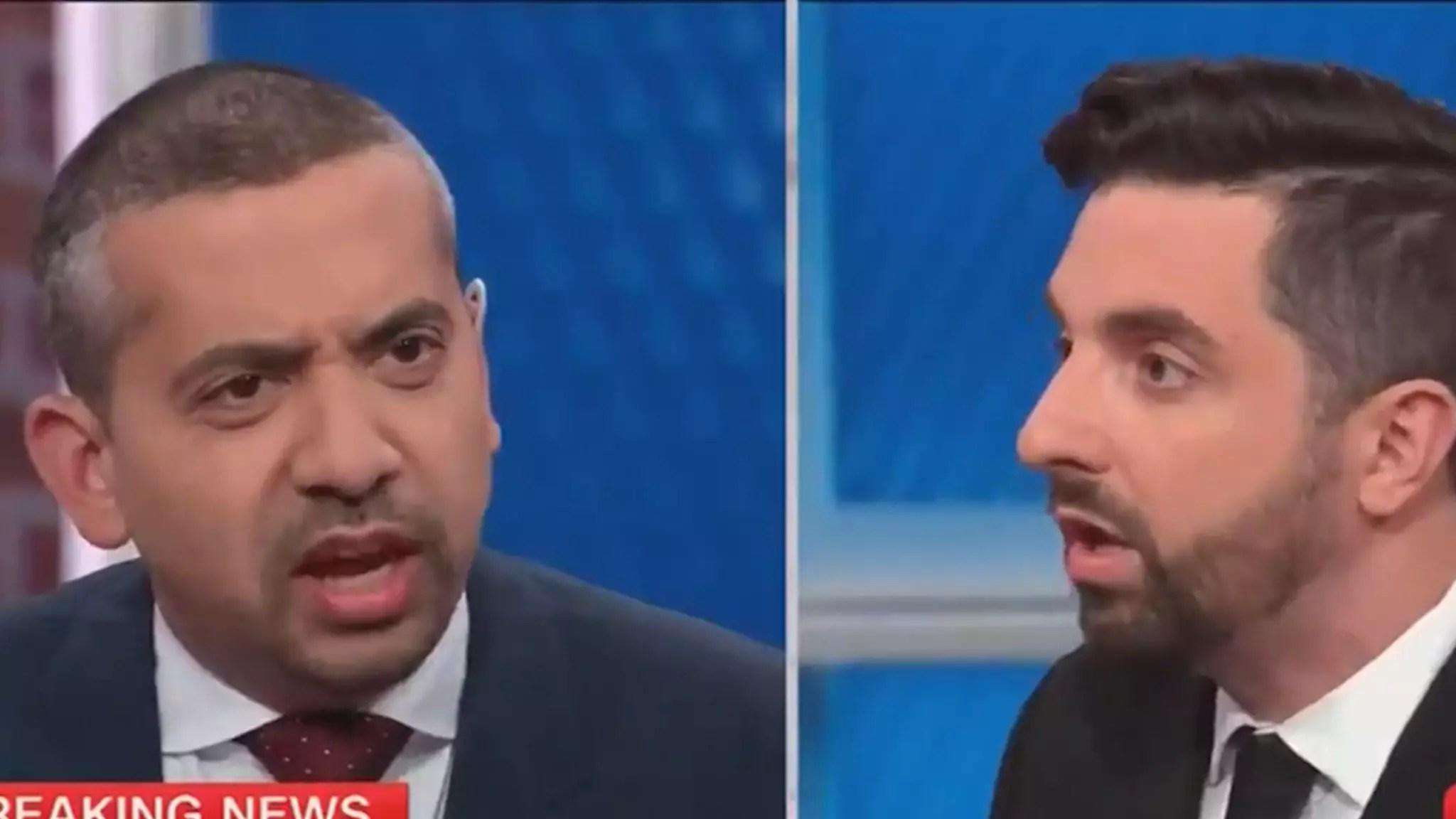The political landscape is often marred by heated exchanges and controversial remarks that can shift public opinion in an instant. Recently, political commentator Ryan Girdusky found himself at the center of a media storm after making an inflammatory remark on CNN’s “NewsNight with Abby Phillip.” This incident not only highlights the volatility of public discourse but also raises essential questions about media ethics, accountability, and the implications of free speech in the digital age.
Girdusky’s comment about fellow guest Mehdi Hasan—specifically referencing a “beeper”—was intended as a joke. However, the implications of his statement were severe, alluding to a horrific event involving Hezbollah, a group recognized for its militant activities. This choice of words led to immediate backlash from the panel and viewers alike. Hasan’s response to Girdusky’s remark was one of palpable anger, expressing concern that the comment suggested violence against him. Such a reaction was not only understandable but expected, given the charged atmosphere surrounding discussions of race and terrorism in America.
In defending his comment, Girdusky claimed that he believed Hasan had expressed support for Hamas, which he just as quickly retracted. This creates a convoluted narrative, where a failed attempt at humor morphs into an accusation that could easily evoke fear and hostility. While humor can play a role in political discourse, it possesses the potential to alienate rather than unite, especially in sensitive contexts.
In the aftermath of the incident, CNN swiftly announced Girdusky’s removal from the network, emphasizing zero tolerance for racism and bigotry. This decisive action may seem commendable but also invites scrutiny regarding the network’s overall commitment to ethical journalism. Is the removal of a guest sufficient to address the underlying issues of systemic racism and fear-mongering in the media? While rejecting Girdusky’s commentary sends a clear message, it ultimately raises questions about the types of dialogues that networks promote or censor.
Hosts like Abby Phillip, while navigating the conversation, must grapple with their roles as moderators in politically charged discussions. Phillip’s on-air condemnation of Girdusky’s remarks brings light to the importance of fostering respectful dialogue. Yet, what emerges is a delicate balance: are hosts merely facilitators of diverse opinions, or do they hold the responsibility to challenge dangerous rhetoric even when it comes from guests?
Girdusky’s assertion that media outlets thrive on outrage is a poignant reminder of the sensationalism that dominates modern journalism. The cycle of outrage often creates a spectacle, drawing viewers in through fear and triggering polarized reactions from the public. Girdusky’s admission that he embraces a “go big or go home” mentality encapsulates the performative nature of contemporary discourse, where the shock value of a statement can overshadow its validity.
Moreover, the media’s role in amplifying divisive comments complicates public understanding of critical issues like antisemitism, race relations, and international conflict. As Girdusky noted in his defenses, many people will eventually forget his remark, yet the ramifications of his comment could linger in public perception. Emotional responses fueled by sensationalism can shape narratives in unintended ways, often exacerbating societal tensions rather than fostering constructive dialogue.
The incident involving Ryan Girdusky serves as an important case study for understanding the complexities of political discourse in contemporary society. It is a reminder that the power of words can resonate beyond the immediate moment, affecting perceptions and attitudes toward entire communities. In navigating such discussions, media outlets must consider not only the content of what is being said but also its underlying implications and potential to harm.
As viewers and citizens, it is equally essential to remain vigilant, questioning not only the words expressed but also the motivations behind them. This raises the crucial point that public discourse should ideally promote understanding and healing, as opposed to division and fear. Only by striving toward this ideal can we hope to foster a more inclusive and respectful dialogue in the future.







Leave a Reply